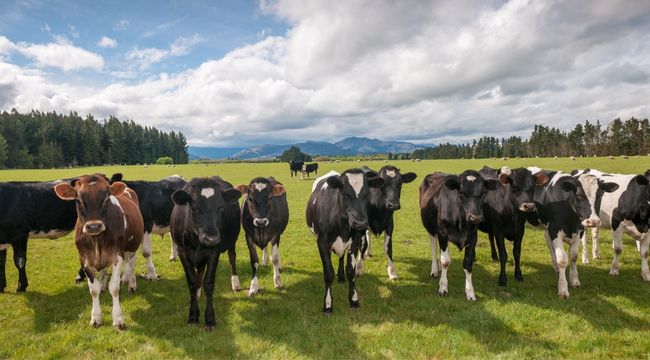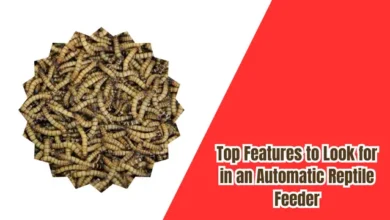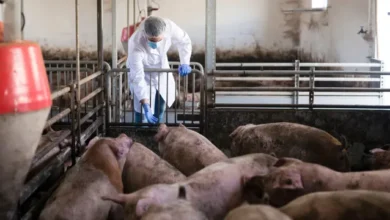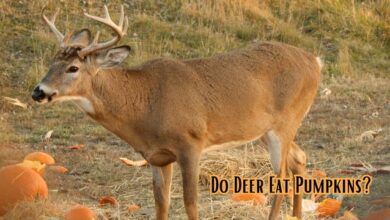
Taking care of your livestock is important for a lot of reasons. Not only do they provide us with essential products like meat, milk, and eggs, but they also play an important role in our environment. Livestock is an integral part of many ecosystems and helps to cycle nutrients and organic matter back into the soil. They also help to control pests and diseases.

But all too often, livestock is not given the care they need, so they become susceptible to pests and diseases. These can cause significant losses for farmers, both financially and environmentally. Luckily, there are some easy steps you can take to ensure your livestock are well-protected from pests and diseases. Here are 7 tips to keep in mind:
Know The Signs Of Disease
The first step in protecting your livestock from disease is to know the signs to look out for. Different diseases will have different symptoms, so it’s important to familiarize yourself with the most common ones that affect your type of livestock. Many diseases can be treated if they are caught early, so knowing the signs is essential. Some of the most common signs of disease in livestock include:
- Loss of appetite
- Weight loss
- Lethargy
- Diarrhea
- Excessive thirst
- Respiratory distress
If you notice any of these signs in your livestock, it’s important to take action right away. Contact your veterinarian for advice, and isolate any sick animals from the rest of the herd. In some cases, you may need to put down sick animals to prevent the disease from spreading. And while this can be a difficult decision, it’s often necessary to protect the rest of your herd.
Get Your Livestock Vaccinated
Vaccinations are one of the most effective ways to prevent disease in livestock. They work by protecting animals from specific viruses, bacteria, and other pathogens that can cause illness. There are vaccinations available for many different diseases, so it’s important to talk to your veterinarian about which ones are right for your animals. In most cases, vaccinations should be given before animals are exposed to potential pathogens. This means that timing is key, and you may need to vaccinate your animals at certain times of the year or before they travel to new areas.
Use Pest Control Methods
Farmers have been using pest control methods to protect their livestock for centuries. There are many different methods available, and each has its advantages and disadvantages. Here are a few of the most common methods:
Chemical pesticides
These are among the most popular pest control methods and include products like insecticides, herbicides, and fungicides. They work by killing or repelling pests and come in a variety of forms, including liquids, powders, granules, and aerosols. Some pests, like cattle ticks, can be difficult to control with chemical pesticides, so it’s important to talk to your veterinarian about which treatment for cattle ticks is the most effective. While they can be effective at controlling pests, chemical pesticides also have some drawbacks. For example, they can be toxic to both animals and humans and can also harm the environment if not used properly. Additionally, pests can develop resistance to chemical pesticides over time, making them less effective.
Biological Controls
This involves using natural enemies of pests to control their populations. This can include things like predators, parasites, or pathogens that specifically target pests. Biological controls are often more environmentally friendly than chemical pesticides and don’t pose the same risk of resistance development. However, they can be less effective against certain types of pests and may take longer to achieve results.
Cultural Controls
This involves changing the way you manage your animals or their environment to make them less hospitable to pests. For example, you might change the way you feed your animals or the type of bedding they use. Cultural controls are often more environmentally friendly than other methods, but they may be less practical for some farmers.
Practice Good Sanitation
Good sanitation is essential for preventing the spread of disease. This means keeping your livestock facilities clean and free of debris and regularly disinfecting any equipment that comes into contact with your animals. It’s also important to separate sick animals from the rest of the herd and to dispose of any manure or bedding properly. Manure can contain harmful bacteria and viruses, so it should be composted or disposed of in a way that prevents it from contaminating other areas.
If you are dealing with a disease outbreak, it’s important to take extra precautions. This may include deep cleaning your facilities and disinfecting any equipment that has come into contact with sick animals.
Hire a Professional Pest Control Company
If you’re having trouble controlling pests on your own, you may want to hire a professional pest control company. These companies specialize in identifying and exterminating pests and can be a valuable resource for farmers. They can also provide tips on how to prevent pests in the future.
When hiring a pest control company, it’s important to find one that is experienced in dealing with the type of pests you have. You should also make sure they are licensed and insured and that their employees are trained in safe pesticide-handling procedures. You should also get referrals from other farmers before hiring a company.
Quarantine New Animals
When you add new animals to your herd, it’s important to quarantine them for a while. This will help you to identify any potential diseases they may be carrying and prevent them from spreading these diseases to the rest of your animals.
When quarantining new animals, it’s important to keep them in a separate area from the rest of your herd. Even if they appear healthy, they could be carriers of diseases that don’t show any symptoms. You should also keep a close eye on them for any signs of illness and contact your veterinarian if you notice anything unusual.
Monitor Your Animals Closely
The best way to protect your animals from disease is to monitor them closely. This means checking them regularly for signs of illness and being alert for any changes in their behavior or appearance. You should also keep track of your weight and take note of any sudden weight loss or gain.
If you notice anything out of the ordinary, it’s important to contact your veterinarian right away. They can help you to determine if there is a problem and provide treatment if necessary.
Livestock pest management is an important part of farm animal husbandry. By taking steps to prevent and control pests, you can help to protect your animals from disease and keep them healthy. Additionally, by using pest-management techniques that are environmentally friendly, you can help to preserve the natural world around us. So if you’re a farmer, make sure you’re doing your part to keep our animals and environment safe!



